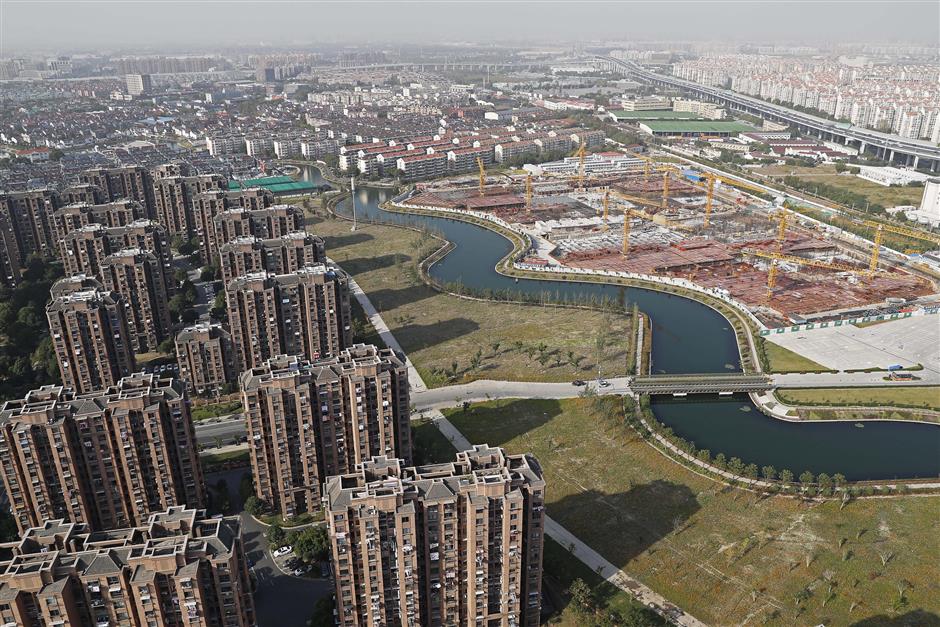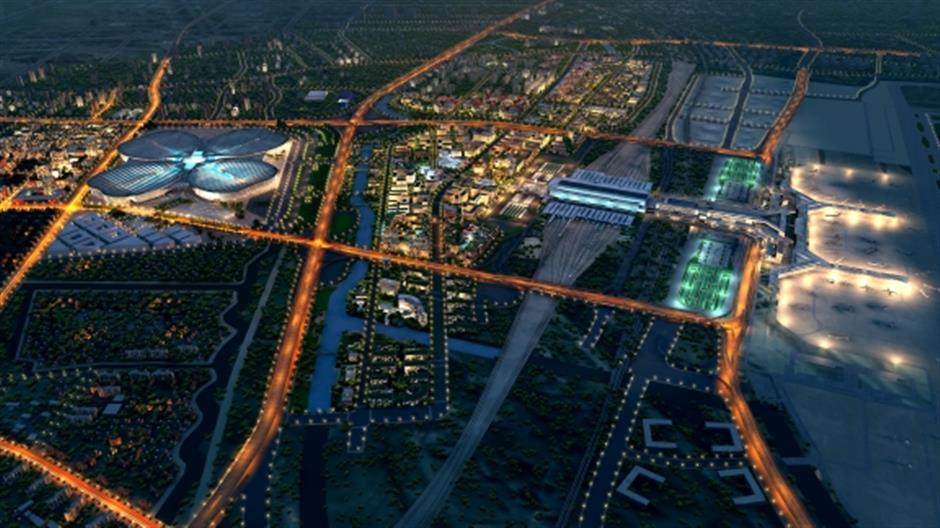Shanghai's Hongqiao International Open Hub, celebrating its second anniversary, has shown remarkable development and achievements over the past two years.
The city has made notable efforts on the development of the hub, which translates into its high-quality development that has led the growth of the Yangtze River Delta region.
The gross domestic product of the Hongqiao International Open Hub's "one core and two belts" area, covering 7,000 square kilometers in total, grew to 2.69 trillion yuan (US$387.7 billion) in 2022 from 2.3 trillion yuan in 2020 against the background of the COVID-19 pandemic.
It indicated that the hub last year contributed almost 10 percent of the combined economic output of the three provinces of Zhejiang, Jiangsu and Anhui, as well as the city of Shanghai, which is a significant contribution considering that the area occupies only less than 2 percent of the region's total land.

In particular, the Hongqiao International Central Business District, as the core area of the hub, has seen a comprehensive acceleration of major economic growth indicators, with continued improvement in display, leadership and competitiveness.
In 2022, the CBD's tax revenue rose 15.2 percent, with the actual foreign investment amount doubling and an 8.6 percent growth in the total import and export volume compared to the previous year.
The district also lured nearly 130 billion yuan in key investment last year, growing by over 60 percent. It is becoming a new benchmark for the rapid development of the YRD region and a new landmark for two-way opening-up.
Moreover, the mechanism framework has been further improved over the past two years. Three sets of working mechanisms have been established, focusing on the 7,000-square-kilometer overall area, the 2,100-square-kilometer Shanghai linkage area, and the 151-square-kilometer core area, which have effectively strengthened the coordination and linkage among the regions.
After discussions between various authorities, two coordination mechanisms have been established to facilitate the integrated development of the delta region. While in Shanghai, a working group has been set up by the city government to oversee the hub's development, with regulations formulated especially for better building the core area.

In terms of tasks and targets, the hub has made significant progress, with 100 of the 104 key tasks outlined in the overall plan having been completed. And, of the 29 policy measures, 26 have been implemented practically.
On promoting the hub's core functions in line with the overall plan, it has seen big upgrades in functions for various aspects, including commerce, exhibition, transportation, sci-tech innovation, and city-industry integration.
Take commerce, for example, the hub is home to more than 500 headquarters of various enterprises with more supportive policies and better services.
The development of the modern service industry has also been significantly enhanced over the past two years.
The Hongqiao International Central Legal Zone was created to bring together a number of high-profile, professional and influential legal service institutions, including law firms, arbitration institutions, notary offices and judicial expertise institutions, in the industry. A total of 40 such institutions have already settled in the hub so far.
The hub has also done a better job in promoting finance to serve the real economy. For instance, it formulated and introduced special policies for opening free trade accounts for enterprises in the Hongqiao CBD, and has cumulatively recommended three batches of 177 enterprises to open their free trade accounts.
It is at the same time playing an increasingly greater role in the exhibition industry, with the successful organization of the China International Import Expo. The fifth CIIE last year attracted more than 2,800 exhibitors from 127 countries and regions, with an intended transaction amount totaling US$73.52 billion on a yearly basis, an increase of 3.9 percent from the previous session.
On supporting sci-tech innovation, the hub made extra efforts to promote modernization in the automobile industry, encourage cooperation among biomedical firms to seek innovation, and gather more major companies dedicated to the digital economy and try cultivating more "unicorn" startups.
Source: Shanghai Daily








